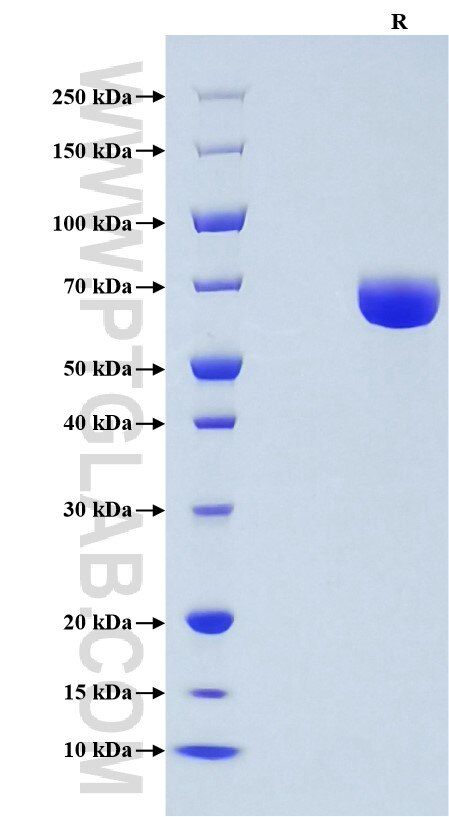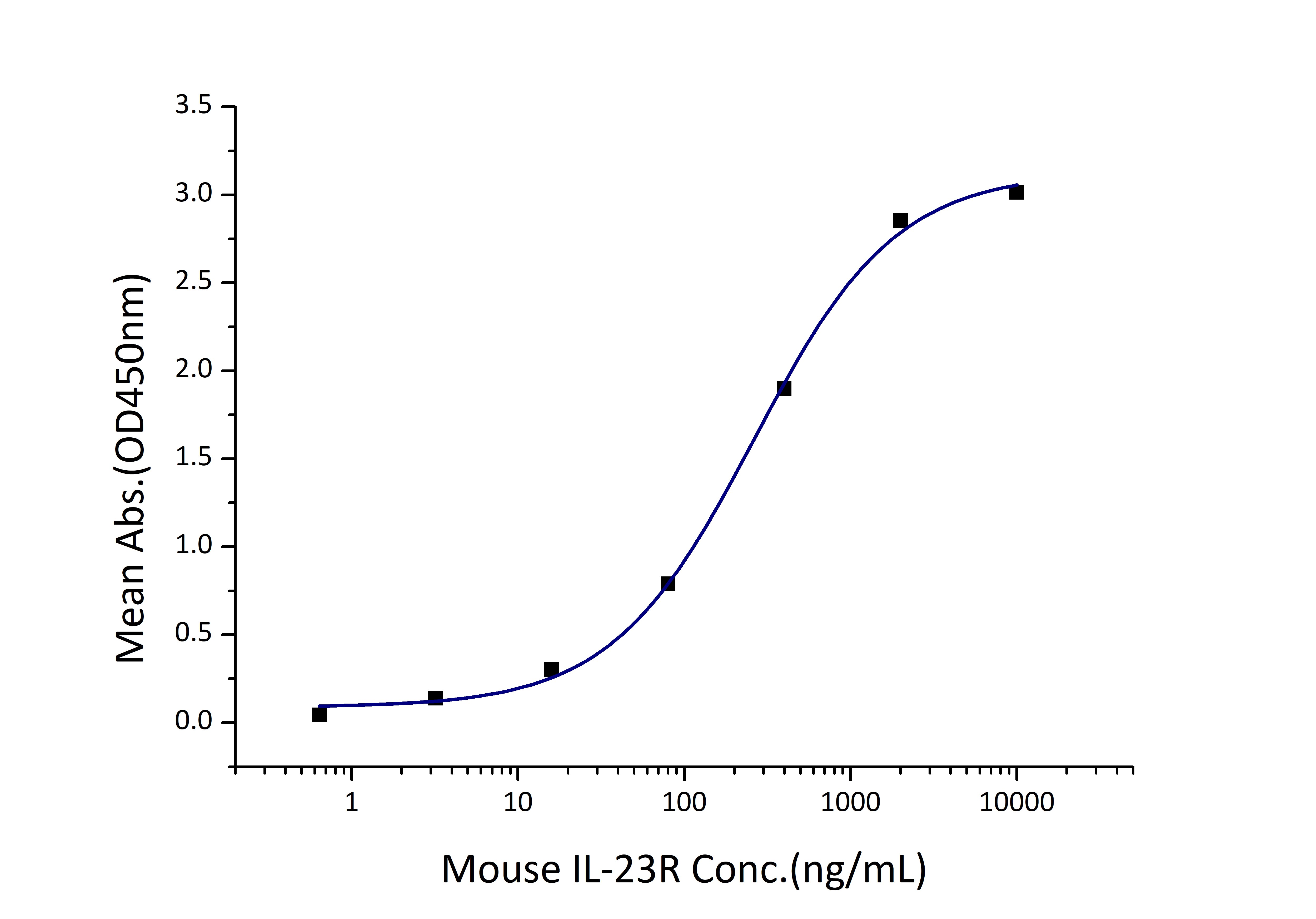Recombinant Mouse IL-23 protein (His Tag)
Species
Mouse
Purity
>95 %, SDS-PAGE
Tag
His Tag
Activity
EC50: 130-520 ng/mL
Cat no : Eg0687
Validation Data Gallery
Product Information
| Purity | >95 %, SDS-PAGE |
| Endotoxin | <0.1 EU/μg protein, LAL method |
| Activity |
Immobilized Mouse IL-23 (His tag) at 0.5 μg/mL (100 μL/well) can bind Mouse IL-23R (hFc tag) with a linear range of 130-520 ng/mL. |
| Expression | HEK293-derived Mouse IL-23 protein Met23-Ser335 (Mouse IL-12B Accession# P43432)+linker+Leu20-Ala196(Mouse IL-23A Accession# Q9EQ14) with His tag at the C-terminus. |
| GeneID | |
| Accession | P43432(IL-12B) & Q9EQ14(IL-23A) |
| PredictedSize | 58.1 kDa |
| SDS-PAGE | 60-70 kDa, reducing (R) conditions |
| Formulation | Lyophilized from 0.22 μm filtered solution in PBS, pH 7.4. Normally 5% trehalose and 5% mannitol are added as protectants before lyophilization. |
| Reconstitution | Briefly centrifuge the tube before opening. Reconstitute at 0.1-0.5 mg/mL in sterile water. |
| Storage Conditions |
It is recommended that the protein be aliquoted for optimal storage. Avoid repeated freeze-thaw cycles.
|
| Shipping | The product is shipped at ambient temperature. Upon receipt, store it immediately at the recommended temperature. |
Background
Interleukin 23 (IL-23) is a member of the IL-12 cytokine family and composed of two subunits, IL-12p40 and IL-23p19. It is produced by antigen presenting cells and has been shown to promote the production and survival of a distinct lineage of T cells called Th17 cells. A functional receptor for IL-23 (the IL-23 receptor) has been identified and is composed of IL-12Rβ1 and IL-23R. IL-23 is expressed chiefly by the macrophages and DCs. The IL-23R is found on memory T cells, NKT cells, macrophages, DCs, and naive T cells upon activation by TGF-β and IL-6. The main biological effects of IL-23 identified initially consist of stimulation of antigen presentation by DCs, T cell differentiation to Th17 cells, and production of interferon-γ (IFN-γ). IL-23 acts also as an end-stage effector cytokine through direct action on macrophages.
References:
1. Kleinschek MA. et al. (2006). J Immunol. 176:1098-106. 2. Langrish CL. et al. (2005). J Exp Med. 201:233-40. 3. Parham C. et al. (2002). Journal of Immunology. 168 (11):5699-708. 4. Cua DJ. et al. (2003). Nature.421:744-8.

